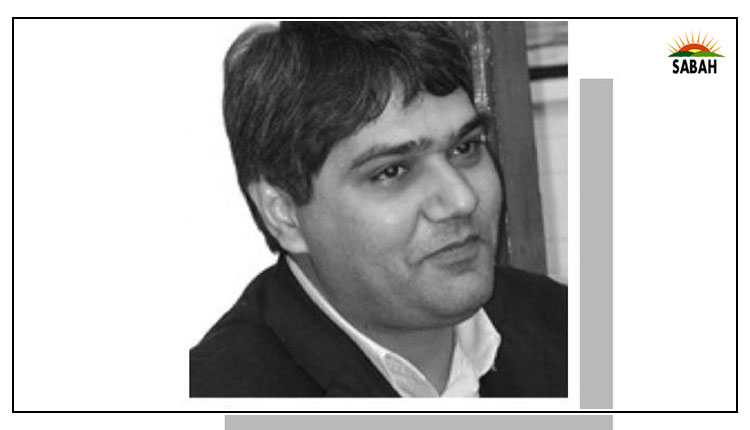Peace between neighbours…..By Muhammad Amir Rana
PAKISTAN has formally shared with the UN secretary general a dossier enclosing the details and evidence of Indian involvement in the deadly Johar Town blast in Lahore in 2021, among other incidents of terrorism. After the UN Security Council adopted a statement warning of the increasing dangers of militancy, envoys from India and Pakistan traded heated accusations of terrorism against each other. The dossier shared on the eve of the UN Security Council (UNSC) meeting under Indias presidency adopted a presidential statement on countering terrorism.
Needless to say, India will leave no stone unturned to malign Pakistan through accusations of terrorism. When India was elected as the non-permanent member of the UNSC, Pakistan foresaw such a tactical move, but when India took over the Councils presidency in December, Islamabad was on alert. Though the UNSC statement underscored the obligation of nations to curb terrorism, after the meeting, the Indian external affairs minister made allegations of terrorism against Pakistan.
Many observers believe Pakistan has highlighted the Indian role in terrorism as a counter-strategy. The terror incident, which was specifically referred to in the dossier, took place in June 2021 in Lahore near the residence of Hafiz Saeed, the head of the banned Jamaatud Dawa (JuD). He was kept under house arrest there after being awarded a life sentence in a terror-financing case by a local court. Pakistans security agencies resolved the case within months, and claimed that execution of the terrorist attack had, undeniably, Indias fingerprints all over it. It is understandable that Pakistan has the right to choose the time to launch the dossier as per diplomatic and geopolitical needs. However, observers are not ruling out the factor of change in the military leadership here, which may signal geopolitical priorities in the coming months and years.
Just a few days after taking charge as army chief, Gen Asim Munir visited the Rakhchikri sector of the Line of Control (LoC). While addressing the troops, he vowed that Pakistans armed forces would not only defend every inch of our motherland but take the fight back to the enemy. The army chief was referring to the statements of Indian ministers on the status of the Gilgit-Baltistan region. However, many Pakistani and Indian commentators conceived his statement in the context of the ongoing political crisis inside Pakistan and the debate on military involvement in the countrys political affairs. Just before his retirement, former army chief Gen Bajwa had acknowledged that decades of interference by the security institutions in domestic politics had exposed them to public criticism.
Before that, the ISI and ISPR chiefs had made similar admissions in a presser, and said that the security institutions would refrain from interfering in domestic politics. Many experts still cast doubts on such assertions as old habits die hard. Only time will tell for how long the security institutions adhere to their pledge. Nevertheless, this is an opportunity to look into and respond to the security challenges the country is facing. Focusing on conventional and unconventional security challenges will restore the militarys public image.
On the list of internal security threats, the Tehreek-i-Taliban Pakistan (TTP), Islamic State-Khorasan and Baloch insurgents are at the top. A well-calibrated approach to address the issue is needed; experts writing on these pages have made suggestions. A similar discourse is required on conventional threats, as most threats are interlinked and shape the geopolitical landscape of the country.
Indias major diplomatic tool against Pakistan has been to keep on talking about terrorism. It has used it more effectively at international forums, but now, using this tactic is becoming difficult for New Delhi, thanks to Pakistans campaign against terrorism and initiatives in compliance with FATF-related regulations. These measures have improved the countrys image, and now the task is to keep up the momentum of success. Dealing with the TTP is a domestic affair, and the international community, including Pakistans allies in the East and West, will appreciate a coercive approach to tackle the challenge. However, banned organisations like the JuD and Jaish-e-Mohammad still have the potential to erode the countrys successes. Both organisations are dormant at the moment, and many of their leaders have been sentenced by the courts. If they resurface again, even in a politically transformed form, it would allow India another opportunity to malign the country.
Nevertheless, there is a strong probability that had the June 2021 terrorist attack succeeded in eliminating its target, India unofficially would have taken the credit, like the US Marines who killed Osama bin Laden on Pakistani soil.
The diplomatic challenges can be dealt with effectively if Pakistans muscles remain strong and the country can execute the quid pro quo plus strategy that the army chief referred to in his LoC address. Nonetheless, in case of any conflict, the escalation ladder should remain the last option; this can come through the internal strength of a strong economy and full public support. It may require a doctrinal shift though. Experts often suggest peace with all neighbours and economic engagement to transform the conventional threat doctrine, making it important to talk to neighbours on all disputes.
The previous military leadership had much to say about a geo-economics shift, but practically it did not tap its full potential because of the challenging situation in Afghanistan and tensions with India. The low-intensity conflict on the LoC and Indian intrusion in Pakistani airspace and an effective Pakistani response kept the attention on geo-economics transformation. Though Pakistan has taken several measures to reduce tensions, including opening the Kartarpur Corridor for Sikh pilgrimages, India has not reciprocated. Despite all the arrogance of the Indian leadership, Pakistan should continue offering peace to India.
Prime Minister Shehbaz Sharifs recent statement about revitalising Saarc was a positive move. It probably also reflected the new military leaderships priorities, which, despite all the hurdles and negativity around security institutions, does not appear to be averse to a resumption of talks with India.
Courtesy Dawn












